8. Flowers of Shanghai (Hou Hsiao Hsien, 1998)
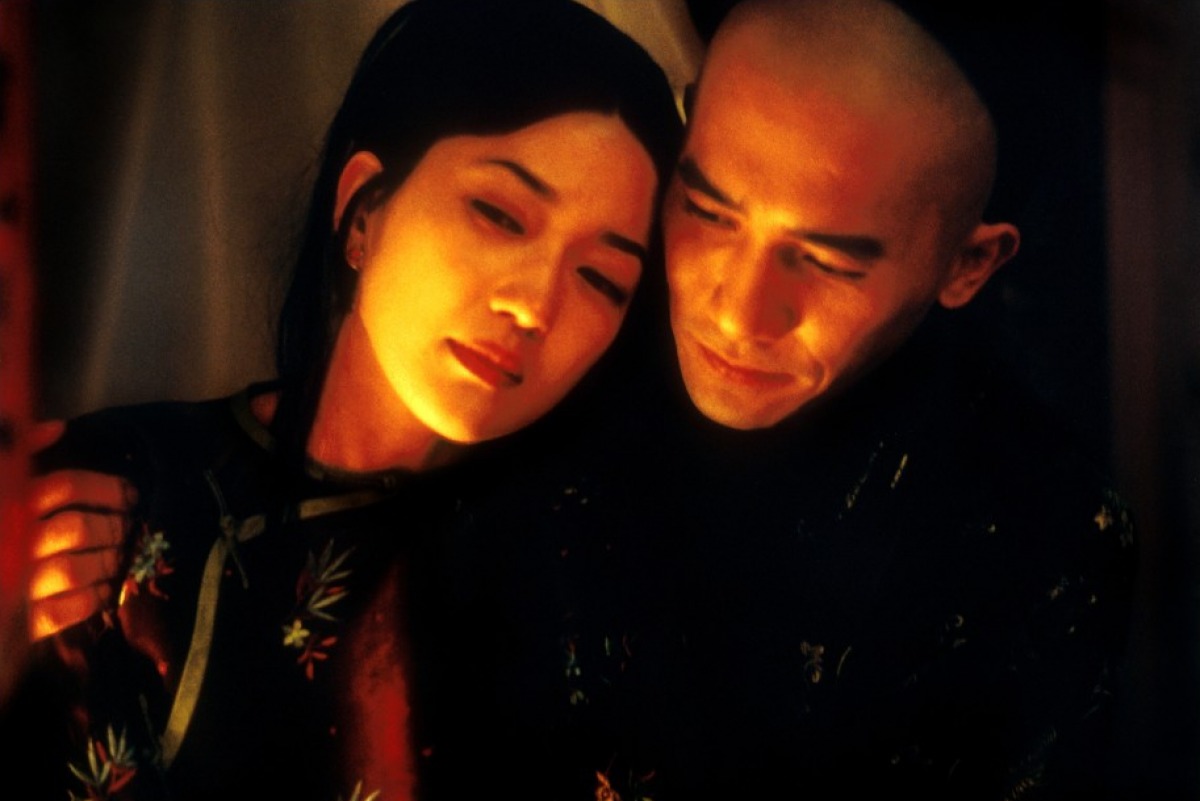
At the end of the 19th century, Shanghai was divided among zones of foreign influence. In the British zone, a number of luxurious “Flower Houses” address the needs of the male elite. The Chinese dignitaries were forbidden to attend brothels and the aforementioned houses are their sole choice for pleasure.
However, those men visit the Flower Houses not solely for the companionship of the courtesans, but also to smoke opium, dine and play Mahjong. The women working there are called “Flowers of Shanghai”.
Tony Leung plays the handsome young Wang, the longtime patron of Crimson, one of the courtesans. However, eventually he endorses another “Flower”, Jasmin, subsequently throwing the life of the former into chaos.
Inside Hou’s utterly minimalistic universe, Leung chances to shine were scarce, apart from his physical aesthetics. Nevertheless, his portrayal of male chauvinism and the scenes when he erupts in anger and later, when he reconciles, are magnificent and in absolute resonance with Hou’s techniques of cinematography.
9. In the Mood for Love (Wong Kar Wai, 2000)
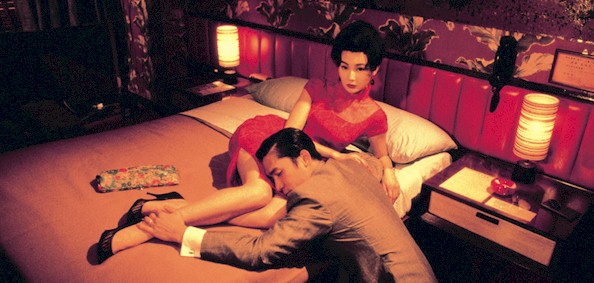
In Hong Kong in 1962, two neighbors, Chow and Su, form a peculiar relationship after they realize their spouses are having an affair with each other. Trying to understand their infidelity, they become closer and closer despite the frowns of the conservative society of the 60s. However, they decide, although reluctantly, to keep their relationship platonic.
Leung portrays an attractive, mysterious and silent individual, who seems bold in his tight jackets and his slick hair; however, he is also a slave to his timidity, thus resulting in an unfulfilled relationship. Furthermore, he is engaged in an elliptical relationship that struggles to emerge in tight rooms, restaurants, stairs and road corners, wherever it could not be seen. This continuous hide and seek is the factor that prevented them from fulfilling their sentiments for each other.
Leung is again sublime in his laconic role, a fact acknowledged by the majority of critics around the world, even netting him a Best Actor Award from the Cannes Film Festival, among a plethora of others.
10. Hero (Zhang Yimou, 2002)
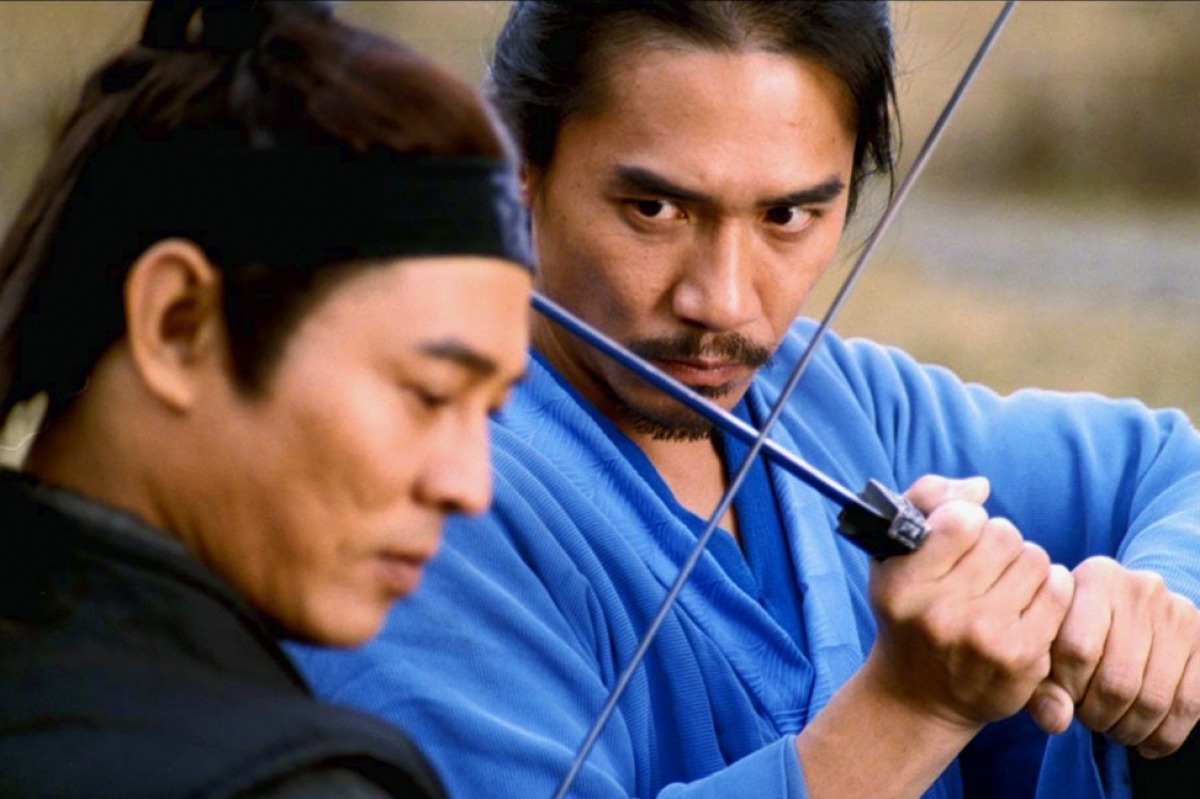
During the Warring States period, China was divided into seven kingdoms. Among them, the most powerful was Qin, whose king’s purpose was to conquer the other six and become emperor. Due to this fact, a number of assassins threatened his life, chiefly among them Broken Sword and his loved one Flying Snow, and Long Sky with his assistant Moon.
Qin promised glory and honor to whoever managed to kill the aforementioned. Eventually, in front of him appears another assassin, Nameless, who alleges that he had killed all of them and presents their weapons as proof. Subsequently, the king asks him to tell the story.
Tony Leung plays Broken Sword, an accomplished swordsman and student of calligraphy who previously attacked the king of Qin and is currently a wanted man. Zhang Yimou draws heavily from the chemistry he and Maggie Cheung presented “In the Mood for Love” and has paired them again in this particular film.
Leung’s character is a tragic one, since his jealousy results in awful outcomes for both him and Flying Snow, and he depicts the sentiment and its subsequent consequences in an exquisite fashion. Yimou also drew from his sex appeal, since he is the protagonist of the sole erotic scene in the film. Leung proved his competence once again in both the romantic scenes and in the action ones.
11. Infernal Affairs (Andrew Lau, 2002)
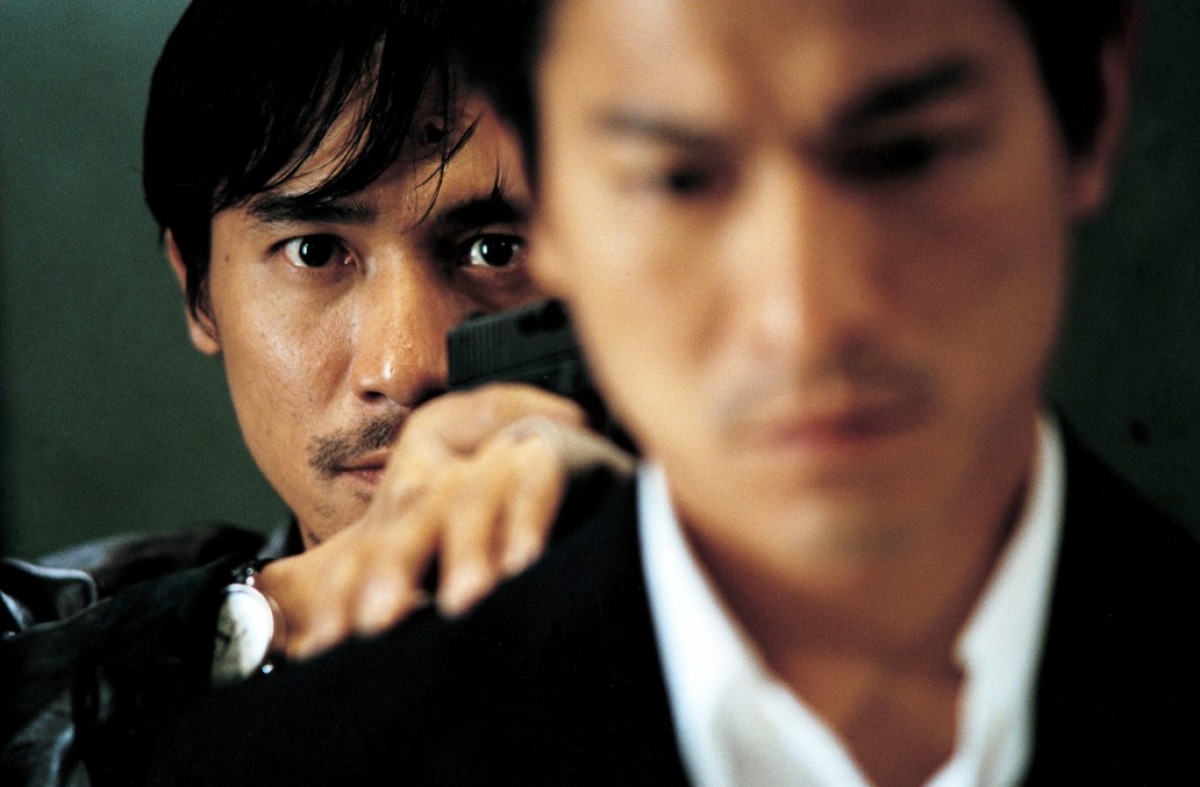
This splendid action thriller revolves around two moles and their struggle to keep their actual identity hidden and achieve their respective goals. Chen Yin Wang was chosen during his days in the police academy to infiltrate the gang of the utmost notorious crime boss, Sam. On the opposite hand, Sam has done the same with detective Lau Kin Ming. Eventually, the two moles have to face each other.
Leung plays quite a multilevel character as Chen, who has been working as an undercover police officer since his adulthood and his piled stress from all those years is about to erupt. He is very tired of pretending to be a criminal; however, his operator, Wong, despite his previous promises for the opposite, does not allow him to leave. This causes him to suffer from insomnia and to have a number of outbursts that lead to violent episodes, even murder.
Unavoidably, Wong forces him to see a psychotherapist, where he finds some solace. However, this does not occur in the usual fashion, but by sleeping during sessions on the couch.
Leung wonderfully plays a character who severely suffers from an identity crisis. Furthermore, he is impressive in the scenes where his agony has piled up, where his struggle not to be identified but also to deliver is evident from each word he utters and every move he makes.
His performance earned him the Best Leading Actor awards from both of the major Hong Kong competitions (Hong Kong Film Awards and Golden Bauhinia) and from the Taiwanese Golden Horse Film Festival.
12. 2046 (Wong Kar Wai, 2004)
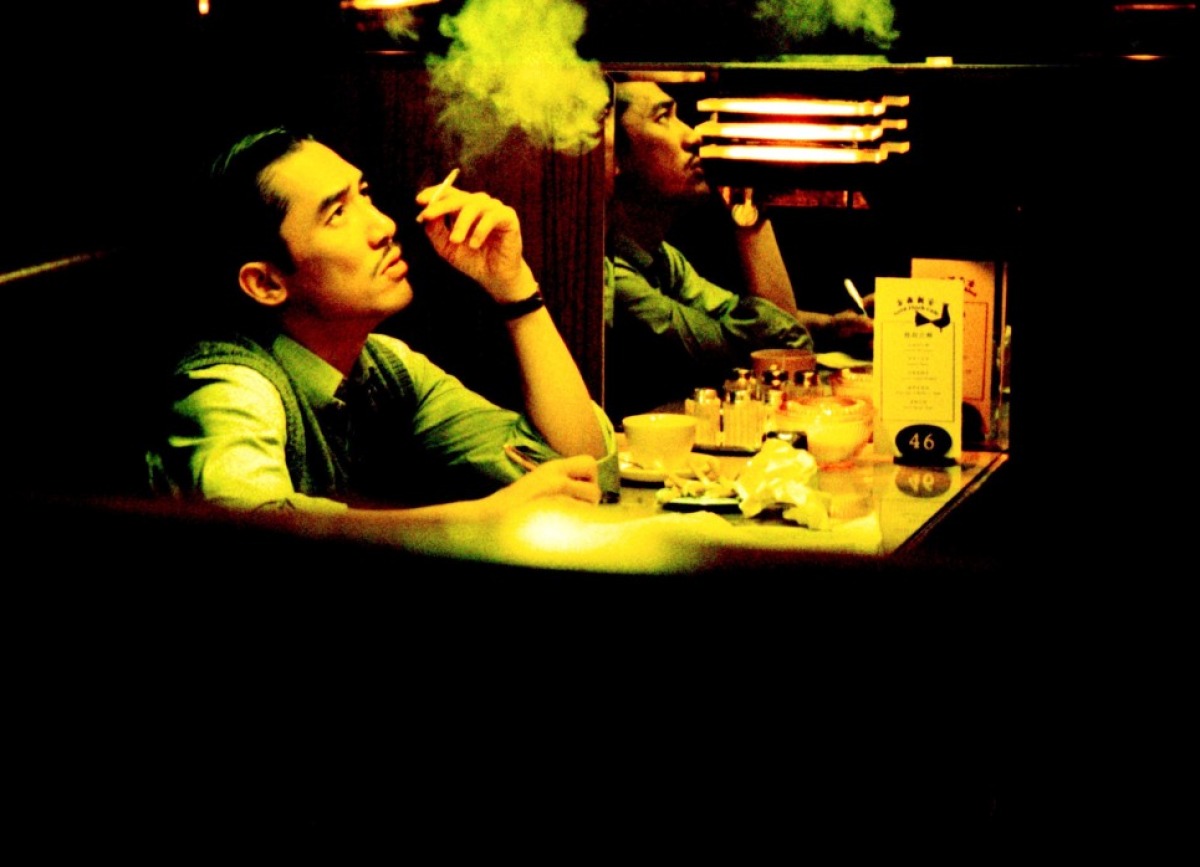
Journalist Chow Mo Wan writes a novel titled 2046, concerning the passengers of a peculiar train that travels in search of their lost memories. The story starts in the future, in 2046, and gradually becomes a trip of the memories of Wan, where each stop symbolizes a woman of his past.
Wong Kar Wai based the film on Tony Leung, who plays Chow Mo Wan, and he delivered in astonishing fashion as a womanizer who reminisces on a past that he could neither alter nor forget.
Leung presents a character whose sarcastic attitude, bleak manners and devious smile appear only to hide his weaknesses and his perpetual lack of fulfillment.
For this particular role, he once again won the Best Actor Award by the Hong Kong Film Awards and Golden Bauhinia.
13. Lust / Caution (Ang Lee, 2007)
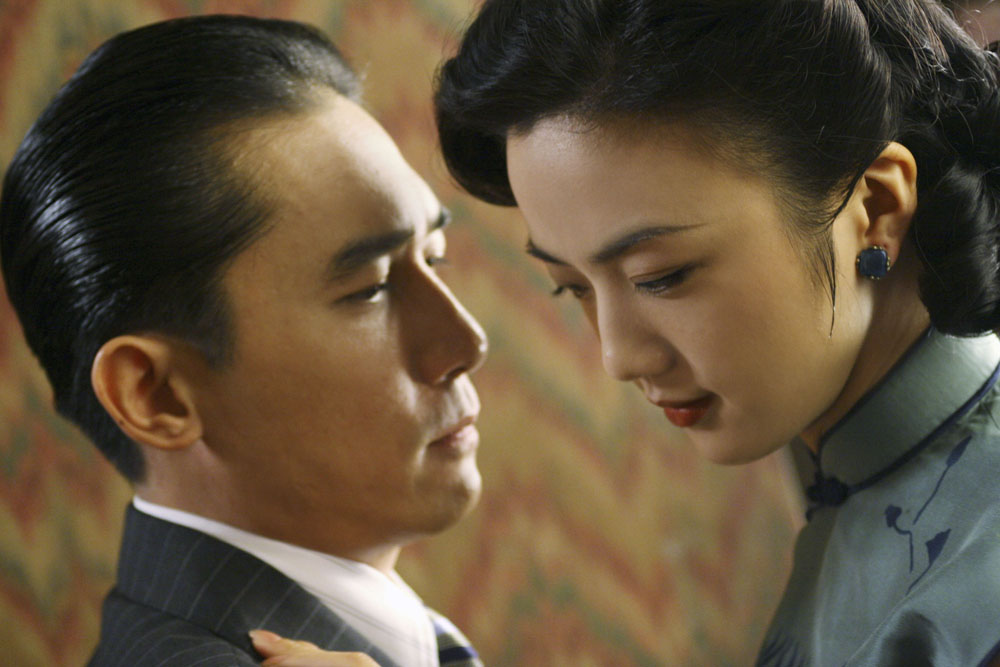
In this story that unreels in two time frames during the Japanese occupation of China, Wong Chia Chi is a university student who gets swept up in an assassination plan against a pro-Japanese Mr. Yee, who eventually becomes the head of the secret police. Her role is to infiltrate his entourage, seduce him, and lay the ground for her Resistance comrades to eliminate him.
However, her mission gets jeopardized due to his insatiable sex drive that results in a highly sexual relationship between the two, and the constant struggles and disagreements among the members of the Resistance.
In this competition between lust and caution, Leung plays Mr. Yee, who lingers between the two, with the former ending up as the obvious winner. Mr. Yee presents a smooth, attractive and cruel facade; however, he hides underneath it his perpetual strain, because he is a traitor to his people and in a constant struggle to prove himself to the Japanese without being killed during the process.
Ang Lee drew heavily from his evident sexuality, incorporating in the film a number of explicit and protracted erotic scenes between him and Wei Tang, who plays Wong Chia Chi.
14. Red Cliff (John Woo, 2008)
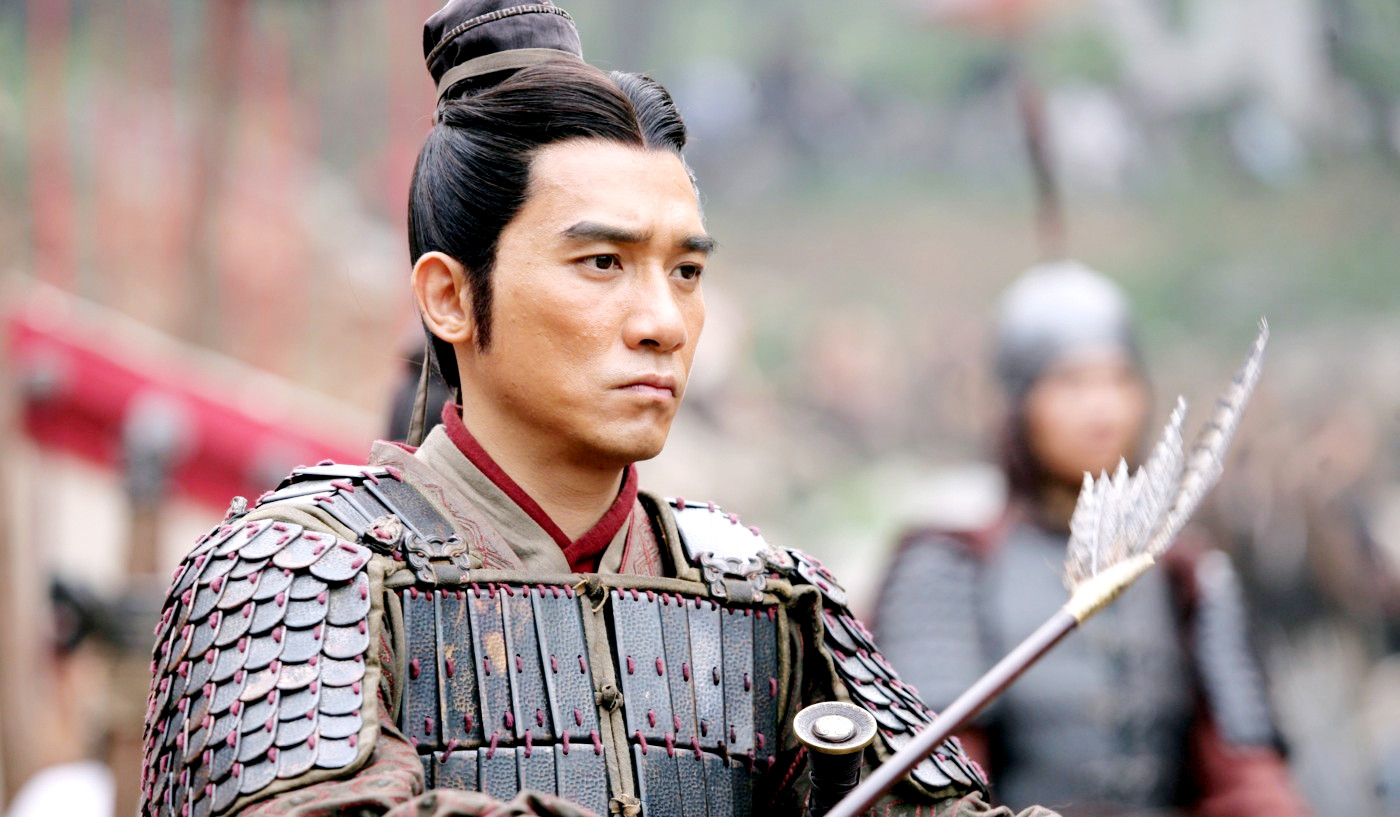
This almost 5-hour epic takes place during the end of the Han Dynasty, when the devious general Cao Cao persuades the emperor that the only way to unify China is to levy war against the kingdoms of Wu and Xu. With him in the lead, the vast army initiates the campaign forcing the two kingdoms to unify in order to face his attack.
Tony Leung plays Viceroy Zhou Yu, a fierce fighter and a cunning strategist. John Woo primarily focused on the action and subsequently on the technical aspects of the film rather than character development and other artistic notions, thus resulting in a number of undemanding roles, including Leung’s character. However, he still managed to shine among a number of actors, proving that not even the aforementioned can contain his unique talent.
15. The Grandmaster (Wong Kar Wai, 2013)
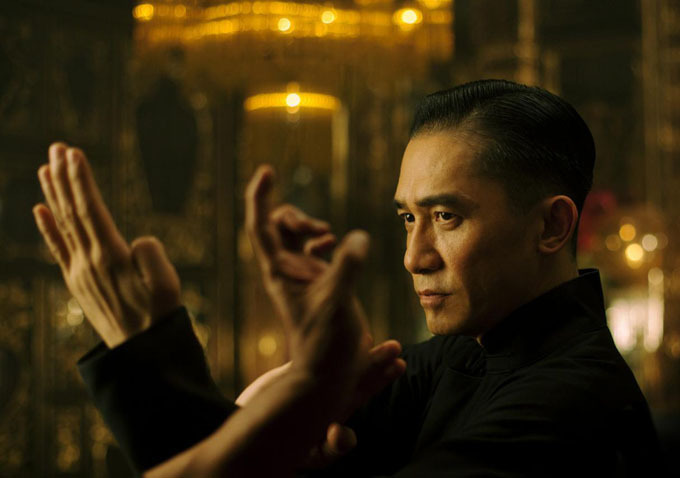
The first developed and last released of a plethora of films regarding Ip Man, Bruce Lee’s teacher, “The Grandmaster” separates itself from the rest due to its exquisite aesthetics and the focus on the script.
Ip Man, a kung fu master, lives a wonderful life with his spouse and is about to succeed his teacher as head of the school. However, his teacher’s daughter, Gong Er, challenges him on his skills and his rights to succession. Subsequently, an unfulfilled romance occurs between the two, while the Japanese occupation alters their lives for the worse.
Wong successfully paired Tony Leung and Zhang Yiyi once more after “2046” and even managed to present a romantic melodrama based on their relationship rather than a straight, martial arts film. The chemistry between the two, although presented solely in an indirect fashion, is quite evident in its visual glory, chiefly in the fighting scene between the two, which is sublimely choreographed and one of the highlights of the film.
Tony Leung’s portrayal of Ip Man is similar to the one in “Lust / Caution”, presenting his character in a detached fashion, whether he appears in a fighting scene or a scene where he is philosophizing.
Wong Kar Wai’s focus on detail found its perfect representative in Leung, who even broke his hand twice during the shooting, in his attempt to portray his character exactly as the director demanded.